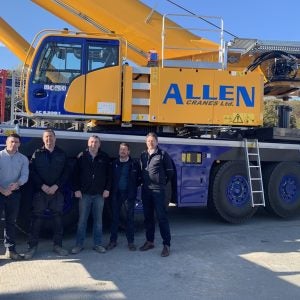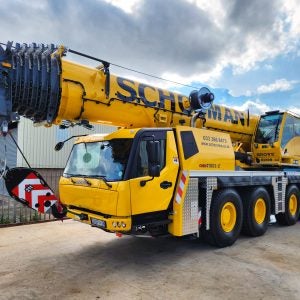The story is set in a fictive industrial town, which resembled cities in the North of England at the time, poverty-stricken and where ‘serpents of smoke’ are finding their way to the sky. The factories are operating for long hours and the health and safety of employees is disregarded.
Fast forward 166 years later, times are tough for different reasons. Covid-19 has affected nearly everyone’s daily life around the world and has hit the global economy severely. Indicators of the severity are the US oil prices that traded below zero for the first time in history and the exponentially increasing number of people claiming unemployment benefits.
However, during this pandemic we were able to see how important the health and safety of employees is for businesses in our sector. Inside some crane factories there were re-organisations in areas of production to prevent the spread of infection as well as extensive hygiene management.
There have also been temporary shutdowns of factories, either decided by the manufacturers themselves or imposed by local and central governments. The nature of some people's jobs in the industry has allowed them to continue working, this time from home. ‘Safety first’ is one of the slogans of the industry; it evidently applies to more than lifting operations.
Reports of factories re-opening in China, as well as in some European countries where there have been prolonged lockdown measures, are positive signs for crane manufacturers and their suppliers around the world.
Construction also appears to be one of the first sectors governments allow to re-start operations when relaxing the measures. So the crane industry will definitely be affected by the pandemic, but less than others.
The pandemic has had positive effects as well, as it has strengthened the sense of community that for decades has been eroding. People have been helping each other out without expecting something in return. This generosity was shown by some crane rental companies and manufacturers, who have provided support to their local community, not only financial but also through donating protective masks.
Unfortunately, we don't know when the crisis will be over. In the meantime, governments' decisions have a direct effect on business operations. Businesses often have to change their strategies abruptly and are focusing on the short-term. We have refrained from publishing stories online and in print about individual companies’ announcements on their operations during the pandemic, because they could quickly become outdated.
We think that from our side it is important to report the effects of this pandemic on the market and we will only be able to do that when a bit of time passes by. By then, industry professionals will have a clearer picture of how this pandemic has affected their business, the local economy and international trade.
In this issue, you will find an interview with Tadano America Corporation (TAC) CEO Ingo Schiller. He talks to us about Tadano’s new structure that would see all of the company’s operations in the Americas managed as one. The feature on rough terrains with capacities of 90t (100USt) or higher, is also inevitably more focused on North America, as this region generates most demand for such machines. But are these models offered all over the world?
Variations in rough terrain manufacturers' global offering is the focus of the other feature in the dedicated section of the magazine. There is also a feature on the latest innovations in crane attachments. I hope you enjoy reading this issue and stay safe!
Sotiris Kanaris, Editor
sotiris.kanaris@cranestodaymagazine.com






